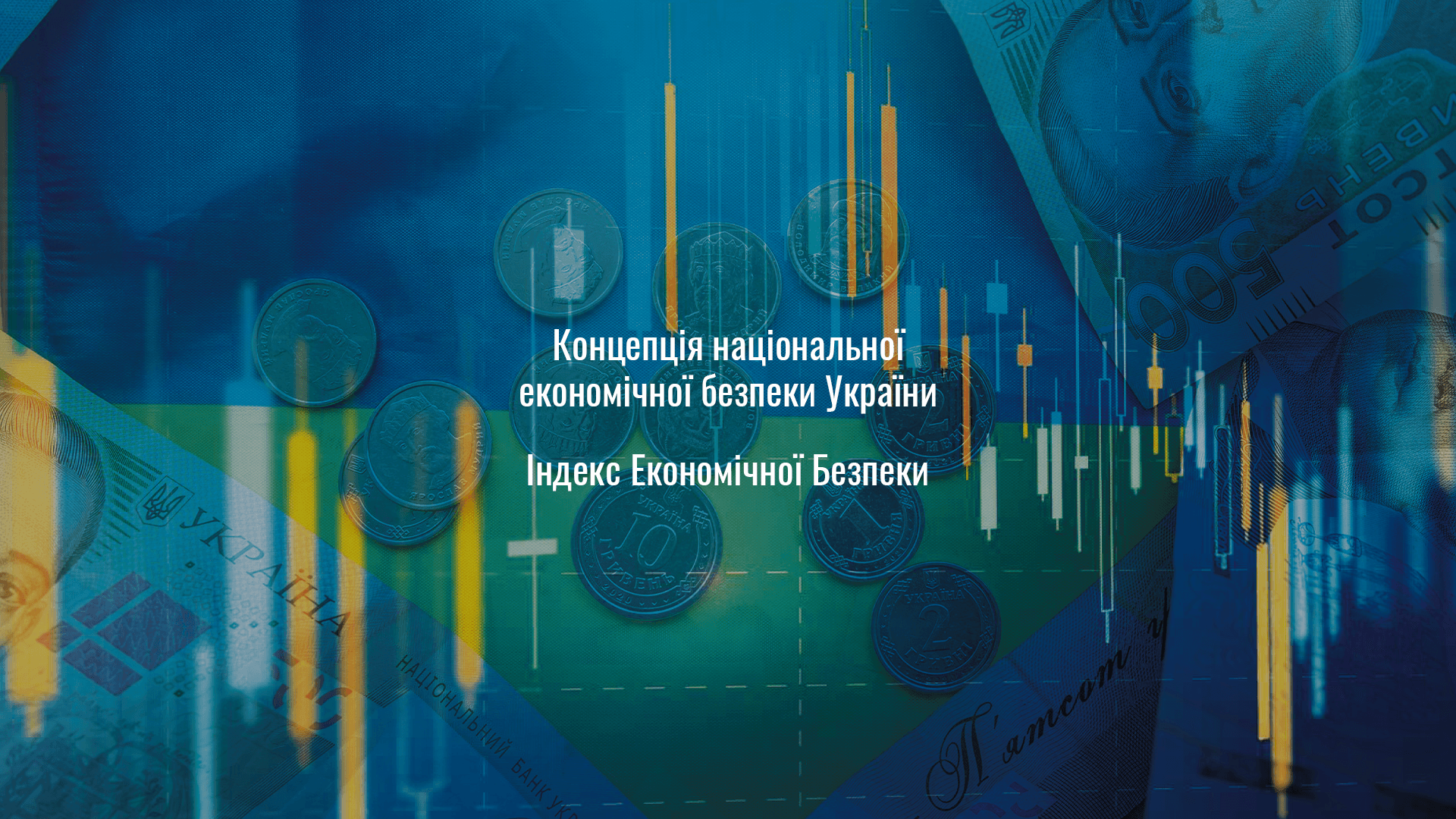In mid-August 2024, the Fitch Ratings rating agency once again downgraded Ukraine's credit rating. It was C, but it became RD (limited default), and our rating on Eurobonds became D (default). Since the word with the letter D has been with us for a long time, we should fasten our belts, and not be afraid, but understand it in detail in order to resist various risks and threats.
What is DEFAULT: a sentence or an opportunity?
When they say "default of the country" or "default of Ukraine", they mean the inability of the Government to settle its debt obligations on time.
The government took a loan, including through the issue of bonds, and on the specified date was unable to make payments on interest or principal on the foreign debt.
Imagine that on September 1, 2021, you loaned $5,000 to a neighbor for 3 years at 5% per annum. On September 1 of each year, he/she, as your debtor, undertook to pay interest, that is, $250, and on September 1, 2024, to pay interest and return the entire amount of the debt. Technical default is when, on September 1, your debtor has delayed payment of interest by at least one day.
The causes can be different: he didn't get his salary on time, he went on vacation, and there was no connection there, or he simply drank the stash, from which he had to return the debt for interest obligations. That is, he has money in his account or in a reserve, he earns, but he has not paid you. September 1, 2024 comes, and he tells you: “Sorry, neighbor. There is no money. My wife has left and has taken all the savings. The summer cottage has burned down, and there were exactly those five thousand dollars of principal debt and $250 interest. I can't repay the debt."
This means default in a simplified version, as close as possible to real life.
What happens in such a situation? You sit down at the table and start negotiations on how to proceed. This is a civilized approach, we do not consider gangsterism. The neighbor explains to you how he earns, how he can earn, what savings, assets and resources he has. Whether you offer a debt repayment plan with or without additional interest is up to you.
If the neighbor-debtor categorically refuses to fulfill his obligations?
- You can go to court and collect the debt through legal mechanisms;
- Hire a person/organization who will check the real financial and material condition of the neighbor and provide him with arguments to give you your money;
- Settle for a certain amount that your neighbor offers you ("whatever I can"). Each of these scenarios has disadvantages for you as a lender.
Depending on the volume and amount of expenses, the trouble, the problem, can be short-term, or it can last for years. If the creditor cannot come to terms with the losses and damages, goes into a mode of revenge and anger, then he adds non-material ones to the material losses, including the deterioration of the quality of life.
Now let us imagine the situation of a country's default. Let us divide it into stages.
Stage 1. "Searching for an answer to the question, Do we need a loan?"
The government has decided to borrow. The causes may be different. For example, a deficit was created in the state budget due to a decrease in the economic activity of large taxpayers. This led to a smaller tax base and, accordingly, lower taxes. It is easier and faster for the country's authorities to borrow (intercept) than to cut costs so as not to enter the red. The government boldly decided to build a factory (dam, railway) or a nuclear power plant. For this, they decided to take a loan. Looks like it should pay off. Or, under the influence of international experts with their false ideas about sustainable development, the Government decided to borrow "like everyone else" to finance innovative activities or the introduction of "green" technologies.
A fragmentary calculation is made in situations, for a political order and mandate of potential borrowers.
Analysis of total costs is done.
Frederic Bastiat's simple test based on the principle of "what is visible and what is not visible" does not pass.
Henry Hazlitt's basic recommendation "one must see and accept not only short-term, but also long-term consequences of actions/decisions not only for one social group, but for everyone" is not applied.
A full-fledged economic calculation is replaced by a meager accounting and legal write-off.
Governments often borrow for such projects. An exception is the situation when a country takes a loan to finance its security system because it is in the red zone of risks of military aggression.
Stage 2. "Finding creditors and signing an agreement with them"
The government has decided: "we borrow". The Ministry of Finance, the Ministry of Economy, together with consultants and international organizations, prepare the necessary documents and announce on the platforms where potential creditors are concentrated: "Ukraine wants to borrow."
For this:
- we issue Eurobonds,
- we sign an agreement with a creditor (IMF, EBRD),
- we sign an agreement with the government of another country or group of countries (such as the EU).
The parties determine the terms of the transaction, the obligations of the borrower (Ukraine) and the creditor, the mode of providing resources and reporting - and off we went.
Stage 3. "Loan development"
The most pleasant stage for VIP disposers of other people's property. Money comes to the Government’s account and is distributed according to the presented plans and programs, but the list of specific beneficiaries is determined manually.
When a private company takes out a loan, it has a strong incentive to get production up and running as soon as possible, to start making a profit as soon as possible to service the loan, and to break even on the loan as quickly as possible.
The Government has a different logic, especially if the loans were taken by one group of people, and another group of people will have to service and pay them back. There is no strictness about where and how to invest credit resources. There is often no basic understanding that the Government needs to take a loan only when its development will provide such additional rates of economic growth in the country, such rapid development that will more than cover the costs of servicing debts and allow the country to move forward faster with greater capitalization, increasing its competitiveness.
However, in fact, the dominant approach is "to develop the loan in such a way that people and structures in attendance enjoy the benefits".
Stage 4. "Accumulation of problems and tensions in public finances"
No matter how long the rope is twisted, the time comes to fulfill financial obligations.
At the beginning of the debt pyramid, maintenance problems practically do not arise. Governments borrow more and more. Neither the burden of servicing loans nor the quality of public spending stops them.
The appetites of VIP-disposers of other people's property are growing, and together with them the size of the State is getting larger.
State guarantees, state orders, and restrictions on competition in the domestic market are in place so that official projects have a better chance of success. They continue to pretend that the situation is under control, but the lenders look at the numbers, balance sheets and flows, and understand that the situation is getting worse, approaching the red zone. It has a whole bouquet of problems that together threaten to violate the borrower's obligations. Among them are an investment drought, an increase in the budget deficit, an inflation-deflation spiral, a decrease in formally legal business activity, a narrowing of the tax base, an increase in the regulatory burden, an increase in the cost of new loans, as well as an increase in the competitiveness of competitor countries.
These are all factors, in addition to the war and its consequences.
Stage 5. "Default or Default"
This usually happens on the eve of the scheduled payment of interest or a certain amount of principal.
The government and the creditor (or group of creditors) sit down for a frank and difficult conversation. The debtor sets out their arguments why they need one or a combination of the following decisions:
- restructuring of old debt,
- issuing a new loan,
- writing off part of the debt/interest,
- interest/principal loan deferment.
The government grounds its proposals with the accumulation of crisis phenomena in the economy, the risks of political destabilization in case of default, as well as the argument "it is better to get this much than nothing at all."
The creditor/s, in turn, present their own arguments:
- You pay your internal creditors (bond buyers) exorbitant interest every year, and we, the old creditors, have been sent to the queue with complete uncertainty of debt repayment. That is, there is discrimination against some creditors at the expense of others.
- You have increasing non-military expenditures during the wartime, even though the population has shrunk significantly.
- You have a huge public sector and assets. You are rich in natural resources that are not included in commercial circulation at all. It is like sitting on a bag of gold and complaining to creditors about poverty.
- You have an appallingly low quality of public administration, as well as management of public assets. You carry out an economic policy of squeezing out the private sector with tax, regulatory, and monetary policy tools. You have an anti-investment policy towards the private sector. You are addicted to foreign aid, which, like a drug, has put you in a state of moral hazard where you believe that you will be given money anyway.
- The world's debt situation has worsened sharply. The world debt has exceeded $100 trillion for the first time in history. The money of central banks, respectively, of commercial organizations is much more expensive (due to high refinancing rates) than it was in the first 20 years of the 21st century. Therefore, we cannot afford debt laxity.
There may be other arguments of the parties, but both the government and creditors clearly understand that the decision to declare default in Ukraine is de facto in the hands of the country's old creditors and external partners.
And here is why.
The readiness and willingness of the external creditors and partners of Ukraine directly depends on the opinion of the creditors, who the country's authorities are negotiating with. If they form the opinion that the Government behaves dishonestly and unfairly towards them, all our investment efforts can be thrown into the trash. The rules of the world market exclude the option to "throw". Therefore, the risks of the countries from such an opinion would be devastating.
The Ministry of Finance of Ukraine has stated that in 2025, the volume of external financing must be increased from $22.7 billion provided by the IMF to $35 billion!
The fact that the average foreign debt service rate has decreased from 6.24% to 5.6% per annum cannot sweeten the very bitter pill of the public debt.
In the case of receiving the planned ~20 billion dollars in foreign aid by the end of the year, the total national debt of Ukraine by the end of 2024 will be approximately 95-100% of GDP, taking into account domestic market borrowings.
More than 6% of GDP needs to be spent on interest alone, and if you take into account the debt, the situation becomes too critical.
No developing country in the world has ever overcome such a debt burden on its own. No country in the world, which is in a bloody war, can do this. Today, Ukraine is in a much more difficult situation than the countries that declared default at the time:
- Mexico 1982,
- Brazil in 1987,
- Argentina in the 2000s,
- Greece in 2012.
Yes, we are at war with the Nazi aggressor, but, no matter how bitter it is to realize it, for many countries, as before, their shirt is closer to their body. They are trying to try on our shoes, but they want to see a responsible, honest and professional government.
The external creditors and partners should be part of the Ukrainian economic policy-making system, which would remove fears, mistrust and questions from those who can press the "default" button. Formally, this would be done by the Cabinet of Ministers after the external creditors/partners suspended or terminated support to the Ukrainian government.
The declaration of default does not mean the termination of financial and military aid to Ukraine. A default is not a stoppage of Ukraine's economy or even a recession.
Today, the creditors do not do this not for formal macroeconomic reasons, not because they believe in the transition of Ukraine to a regime of permanent, stable servicing of the national debt after the adoption of the "Income Strategy" or an increase in the tax burden, but because they rely on the Armed Forces and understand that this is Ukraine that defends the West from Nazi Russia.
It is this factor, which was not and is not in credit agreements and emission prospectuses, that protects Ukraine from default.
In such a very difficult, sensitive situation, it is critically important for the Government to demonstrate respect for the partners/creditors, responsibility in the conduct of economic policy and for those who, during the war, and overcoming their inability, continue to pay taxes and support the engine of the Ukrainian economy.
We cannot be arrogant, rest on our laurels, because "they won't let us fall anyway", tighten the noose of the state plan, socialism on the weak neck of the economy. It is impossible to increase non-military expenditures during the war to the pre-war level, when 10-12 million fewer people actually live in the country.
Analyzing the behavior of the external creditors/partners of Ukraine, it can be assumed that there will be no default of Ukraine provoked by them.
Default is only possible when the Government of our country behaves in such a way that our creditors/partners will be forced to resort to such a tool of influence on the authorities of Ukraine in order to shake off the condition in which they are now.
Everything depends on what to do after default.
Negotiations with our debtors will not leave our agenda in the near future.
Finally, we need to learn to live at our own expense, pay off our debts, not give money to budget scumbags, not raise dependents and, for the first time in the history of Ukraine, make a bet on economic freedom and capitalism.











